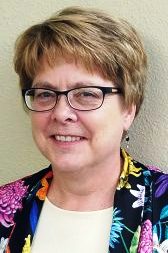
Jackie is the Director of Career Services at The Refrigeration School. Jackie has been part of the RSI family for a little over seven years.
Thanks for your time, Jackie. Tell us about your career at RSI.
I started in admissions as an admin assistant in early 2011. I did that for 18 months until a career services advisor position became available. I applied and got that job. Then after about a year and a half, I was promoted to Assistant Director and held that role for three and a half years, before I got promoted to Director of Career Services about a year ago.
What brought you to RSI from your previous life?
In my “most recent” previous life, I worked at a title company in Maine. We sold everything and just lived in our RV for a while. We ended up in Arizona in 2005. We spent our first winter as snowbirds in Apache Junction in 2005. My husband is a pipefitter, so we kept moving from job to job until we settled in Arizona. That’s why I didn’t really look for anything permanent until 2010.
Get Started on the Path to a New Career
Fill out our form to learn how we can help you change your life.
So what’s your main responsibility as Director of Career Services?
I make sure that the students are taken care of and that the department runs as it’s supposed to.
What does your department consist of?
There are three of us. The other two are Richard Adams, who is the business development coordinator, and Pamela Smith, who is the career services advisor. Richard’s main focus is reaching out to employers, forming business partnerships and creating interview opportunities for our students and graduates, although he helps in other capacities, too. Pamela works with the students, getting their résumés together and helping them prepare for employment.
In a department of that size, I guess you still have day-to-day interaction with students?
Yes, I do. In a small department, we all pitch in and do a little of everything. I have an open door policy. Pam and Richard sit out in the open, so they don’t even have the ability to close a door! We make sure that the office is staffed from when the school opens in the morning until 8 pm. We encourage students to drop by. The better we get to know them individually, the better equipped we are to help them later.
When will students first meet you?
They meet me on the first day of school. All department directors go in during orientation and have a quick chat about our departments. Then later in their first class, we start with our presentations. First we talk about building résumés because it’s important for them to get their résumés taken care of early.
How important is a good résumé in the HVAC industry?
It’s very important. The vast majority of employers want to see resumes. They want to see what you know on paper, and they want to see your employment history even if it is not HVAC-related, so yes, a good résumé is very important in this industry. That’s why we start talking about building a résumé first.
Welders take weld tests when interviewing with companies. Is there an equivalent test in HVAC?
It varies from company to company. There’s no universal test, but some companies will have a verbal or written test that they give during the interview process. It helps them get a handle on the knowledge level of a candidate. For welding graduates, the weld test is primary, but a good résumé is still important. It gives employers a broader picture of you that includes more than just a skills test.
When do students typically first come in to your department?
It varies. Some come in during their first weeks and want to get started right away. Others then come back to ask us after graduation for help with their résumés. Of course, we prefer the former to the latter, because we have employers who come to the campus. The last thing you want to tell an employer if they ask for your résumé is, “I don’t have one!” That’s why we encourage them to get it done early and then update it as they progress through school.
What’s the most common question you get asked by students?
The number one question would be, “How much money can I make?”
How do you normally answer that?
I say it totally depends on them. It depends on their attendance, their grades, how well they interview and how well they prepare.
If you go to an interview coming across as a $10-an-hour employee, then guess what they are going to offer you, if they even make an offer? If you go in looking like a $17-an-hour employee—smart, excited and engaged, and well prepared about the company and the job—then guess what they’re going to offer you? Most students realize that makes sense!
How can students help you to help them?
Let us know what they need from us to help them succeed. We will do everything we can to assist students and graduates, but they also have to be willing to help themselves. Do they have a particular field of interest? Is there anything in their background that they need to address with employers? Our job is to help them get the opportunities. Whether they take those opportunities is up to them. If they get involved with us early in their program, we can get to know them better, and that will help us find opportunities that are a good fit when the time comes.
We also encourage them to stay in touch after graduation, even if that’s an email address update from time to time. We email graduates about career fairs or about opportunities that come up in case they are in the market again or just want to see what else is out there. We can’t help if we don’t have up-to-date contact information.
What advice do you have for students who may be considering attending RSI?
If you’re serious about coming to RSI, make sure you’re committed to learn. Put in the time, get the best grades you can and take advantage of all the resources that RSI has to offer. Most importantly, take advantage of the Career Services Department and what we have to offer.
This blog has been labeled as archived as it may no longer contain the most up-to-date data. For a list of all current blog posts, please visit our blog homepage at https://www.rsi.edu/blog/

